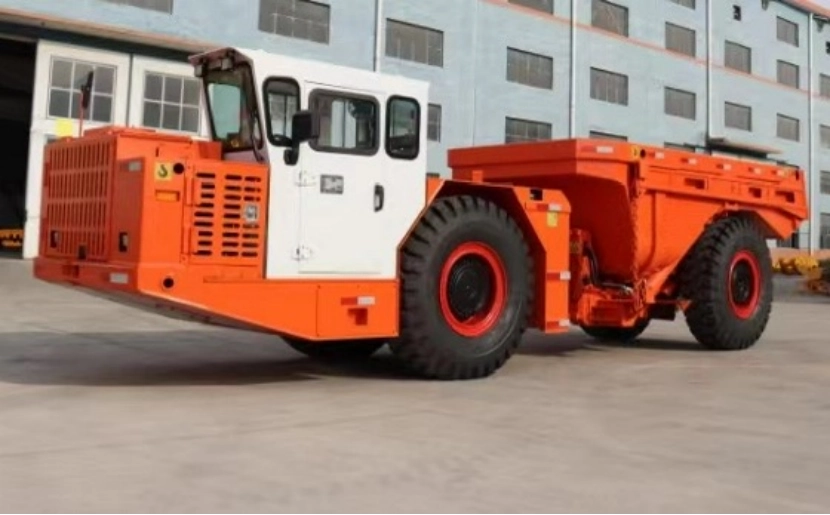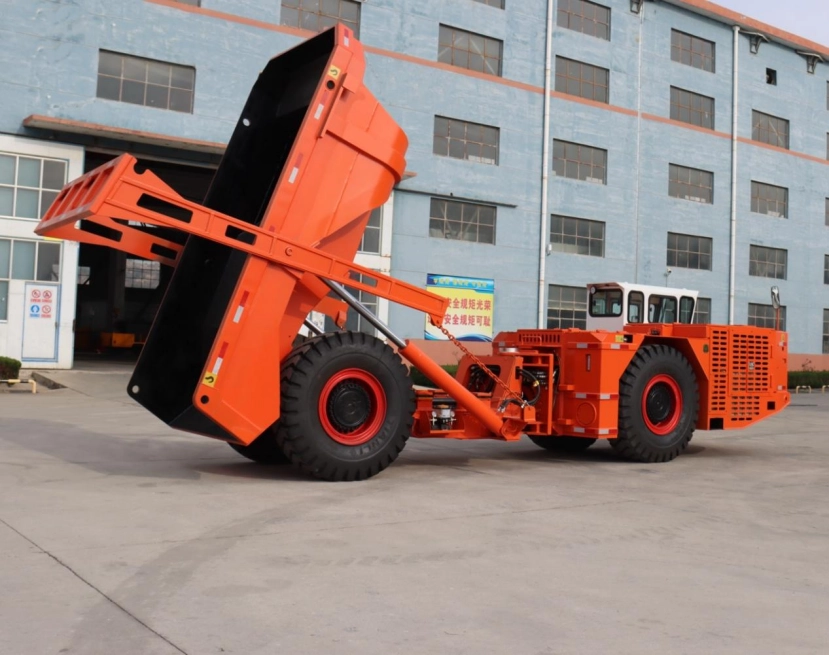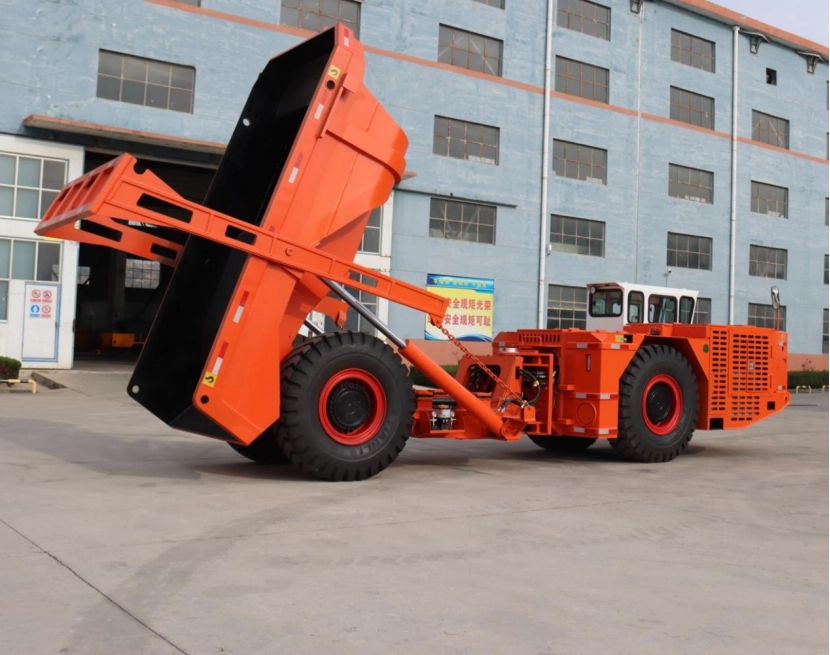Engineering Design Principles Behind Underground Mining Trucks
Structural Reinforcements for Underground Conditions
Underground mining trucks are built to handle super tough, crazy rough places. They gotta be strong,you know? These trucks, also called underground dump trucks or haulers, are heavy-duty rigs made to carry ore, minerals, and waste rock from mines to the surface or processing spots. They’ve got beefy frames and thick plates to deal with falling rocks, banging into tight tunnel walls, and constant shaking. Manufacturers use mega-strong steel and fancy welding tricks to stop cracks from forming when the trucks work hard in cramped spaces.
Compact Dimensions and Maneuverability in Confined Spaces
Mines are tight, man! Tunnels are narrow with twisty corners, so these trucks gotta be small but powerful. They’re designed with low, slim frames and tight turning circles to zip through tiny corridors without a hitch. Unlike big surface mining trucks, these underground ones are made for tough stuff like small spaces, bumpy ground, and not much air. This nimbleness keeps work moving fast and cuts down on crashes in super cramped spots.
Load-Bearing Capabilities and Chassis Strength
Even though they’re small, these trucks can carry a ton—literally! They’ve got big loading power, strong engines, and awesome traction for all kinda underground conditions. Engineers make the chassis super sturdy with smart weight balancing. Beefy suspension and heavy-duty axles keep the truck steady, even when it’s hauling over 30 tons of stuff.
Powertrain and Drivetrain Adaptations for Extreme Mining Environments
Engine Performance in High-Dust, High-Temperature Conditions
Engines in these trucks deal with some wild stress. It’s hot, dusty, and rough down there. Special filters keep dirt outta the engine’s insides, and cooling systems stop it from getting too toasty during long work hours. These are usually turbo diesel engines built for power, not speed, so they can keep chugging along no matter what.
Torque Distribution and Traction Control on Uneven Terrain
Underground ground is never smooth. You got slippery slopes, loose rocks, and steep climbs. These trucks use all-wheel-drive systems with fancy locks that shift power between wheels to keep a good grip. Even if only some wheels touch the ground, the truck stays in control.
Transmission Systems Designed for Continuous Operation
Mining never stops, so the trucks’ transmissions gotta keep up. They’re built tough to run all day without overheating or breaking down. Heavy-duty automatic gears with built-in retarders help slow the truck on downhill runs, saving the regular brakes from wearing out too fast.
Durability Measures for Longevity in Underground Use
Corrosion Resistance and Protective Coatings

Mines are wet and messy, which makes stuff rust quick. To fight this, trucks get special anti-rust coatings on the outside and inside parts like fuel tanks and exhaust pipes. Stainless steel bits are used where they can to make the trucks last longer.
Reinforced Axles, Tires, and Suspension Systems
The bottom of these trucks takes a beating. Axles made from super strong, heat-treated steel hold up against heavy loads. Tires are built with tough stuff to resist cuts, and the suspension has big shock absorbers to handle all the shaking from rough ground.
Maintenance-Friendly Design to Reduce Downtime
When a truck breaks, it messes up the whole mine’s work. That’s why new designs have parts you can swap out quick without tearing the whole thing apart. How to maintain underground mining truck means checking hydraulics, brakes, filters, and electronics—all easy to get to through special panels.
Safety Features Integrated into Underground Mining Truck Design
Operator Cabin Protection and Ergonomic Layouts
Keeping drivers safe is, like, totally key in dangerous mines. Cabins have rollover protection structures (ROPS) and falling object protection structures (FOPS) to keep the driver safe if stuff goes wrong. The seats are comfy and soak up vibrations so drivers don’t get super tired during long shifts.
Fire Suppression and Emergency Response Systems
Diesel fuel and electrical bits can catch fire in a snap. So, trucks have fire extinguishers built right into the engine and hydraulic areas. These go off automatically if things get too hot, plus there’s a manual switch in the cabin just in case.
Visibility Enhancements and Proximity Alert Technologies
Tunnels are dark, and it’s easy to crash into stuff. Modern trucks have 360-degree cameras, bright LED lights for dim areas, and radar sensors that beep if people or objects get too close. No kidding, these save a buncha accidents!
Environmental Controls for Underground Efficiency
Ventilation-Compatible Exhaust Systems
Underground mining trucks need tunnels with solid floors and good ventilation. Diesel engines spit out bad gases like NOx, which can build up fast in closed spaces. That’s why trucks have diesel particulate filters (DPFs) and selective catalytic reduction (SCR) systems to cut down harmful stuff and work with the mine’s air system.
Noise Reduction Technologies in Confined Workspaces
Tunnels make noise echo like crazy, which is bad for workers’ ears and talking. Cabins have soundproofing stuff, and engines use quiet mounts to keep noise low, meeting safety rules for worker health.
Fuel Efficiency Strategies in Closed Environments
Saving fuel isn’t just about money—it helps keep the air cleaner in mines. New engines have start-stop tech to save fuel when idling, plus smart throttle systems that use just the right amount of gas based on how heavy the load is.
Technological Innovations in Modern Underground Mining Trucks
Real-Time Monitoring and Telematics Integration
Tech’s gone deep underground, for real! Telematics systems keep an eye on stuff like fuel use and hydraulic pressure in real time. Drivers can make quick calls based on what’s happening right then.
Autonomous Navigation Capabilities in Underground Settings
Self-driving trucks are changing the game, no joke. They use LIDAR maps and special navigation tricks to follow set paths in mines where GPS doesn’t work. This boosts safety and gets more done.
Remote Diagnostics and Predictive Maintenance Tools
Smart tools let folks far away spot problems before they break the truck. Predictive software uses AI and past data to guess when parts might fail, so you can fix them early and avoid big downtime.
For mining, being safe and fast is super important, especially with gear like underground mining trucks.
Frequently Asked Questions (FAQ)
- What makes an underground mining truck different from a surface dump truck?
Underground trucks are built for tight spaces, rough ground, and bad air, unlike surface trucks that got more room to move. - How do these trucks manage extreme heat inside tunnels?
They got fancy cooling systems and turbo engines that keep going strong even when it’s super hot. - Are there autonomous versions of underground mining trucks?
Yup! Lots of new ones can drive themselves using LIDAR and AI paths made for spots where GPS don’t work. - How do these vehicles ensure operator safety?
They got ROPS/FOPS cabins, fire extinguishers, radar alerts, and comfy setups—everything to keep drivers safe. - Can these vehicles operate continuously without frequent breakdowns?
Totally! With smart monitoring and easy-fix designs, they’re made to keep running in tough mine jobs.
Wanna know how these trucks can level up your mining work? Hit us up for a custom plan! QINGDAO ZONGDA MACHINERY CO., LTD, started 10 years ago by mining pros, builds awesome gear to keep your operations safe and speedy worldwide.





